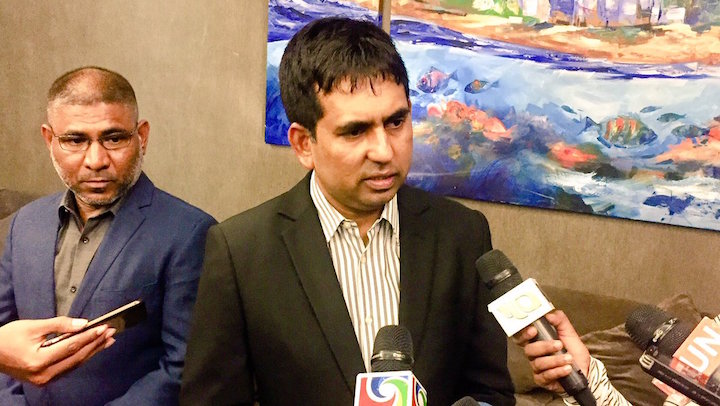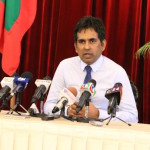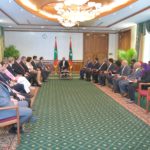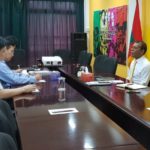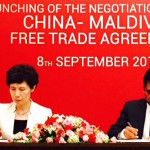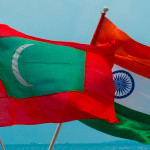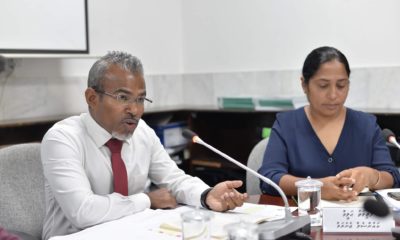Economic Development Minister Mohamed Saeed has departed for Hong Kong to conclude negotiations for a China-Maldives free trade agreement to be signed in early 2017.
Briefing reporters at the airport Sunday night, Saeed said the Maldives is hoping to secure duty-free status for fish and processed seafood exports.
He said the government is seeking the free trade deal because the Maldives is no longer eligible for tariff reductions for fish exports to the EU, the single largest export partner by value.
“So the president especially took the initiative to find a way to sell Maldivian fish easily to foreign markets,” he said.
Saeed acknowledged that the Maldives became ineligible for the Generalised Scheme of Preferences from the EU after graduating as a least developed country in 2011.
However, President Abdulla Yameen has repeatedly accused the EU of imposing restrictions on Maldivian fish exports over the government’s refusal to legalise same-sex marriage and freedom of religion.
Saeed said the Maldives’ first bilateral free trade deal will be finalised at the fourth and final round of negotiations due to begin tomorrow.
The Maldives previously only signed the regional South Asian Free Trade Area agreement.
Negotiations will also begin for a free trade deal with Hong Kong, a special administrative region of China, with the goal of signing an agreement within six months, Saeed said.
The Hong Kong government announced its intention to pursue a free trade agreement with the Maldives last May.
In 2015, Hong Kong’s bilateral merchandise trade with the Maldives amounted to US$36 million, representing a 38 percent increase from 2011. Hong Kong was an observer during the negotiations with China, which commenced in September 2015.
China is the largest manufacturing economy in the world and the second largest importer of goods. China is also the world’s fastest growing consumer market.
After becoming a member of the World Trade Organisation in 2001, China has signed free trade agreements with several nations, including Australia, South Korea, and Switzerland.
Yameen had said last December that the free trade deal with China should not be a “cause for concern” despite the potential loss of revenue from import duties.
The government earns a “sizeable” amount as revenue from import duties, he said, but was no longer as dependent on tariffs since the introduction of new taxes. On the other hand, the public would benefit from the availability of cheaper goods, he said.
A joint statement released after the first round of talks in September last year stated that both sides “agreed to pursue the negotiations with the spirit of reaching a high quality and mutually beneficial agreement that is in line with [World Trade Organisation] principles on multilateral trading.”
The decision to pursue a free trade agreement was made during Chinese President Xi Jinping’s historic state visit to the Maldives in September 2014.
The Maldives also agreed to become a partner in China’s maritime silk route and the Chinese government pledged US$100 million as grant aid for a bridge connecting Malé and the reclaimed island Hulhumalé.
In June last year, Yameen declared that Sino-Maldives relations are at an “all-time high” with the establishment of a cooperative partnership.
Yameen, whose three-year administration has been besieged by multiple political crises, has repeatedly slammed alleged interference in domestic affairs by Western countries, especially since the imprisonment of former President Mohamed Nasheed and other politicians in early 2015.
The government is “looking east” for development partners as economic cooperation with China does not involve the same challenges to remaining an Islamic state posed by “Western colonial powers,” he declared after assuming office.

